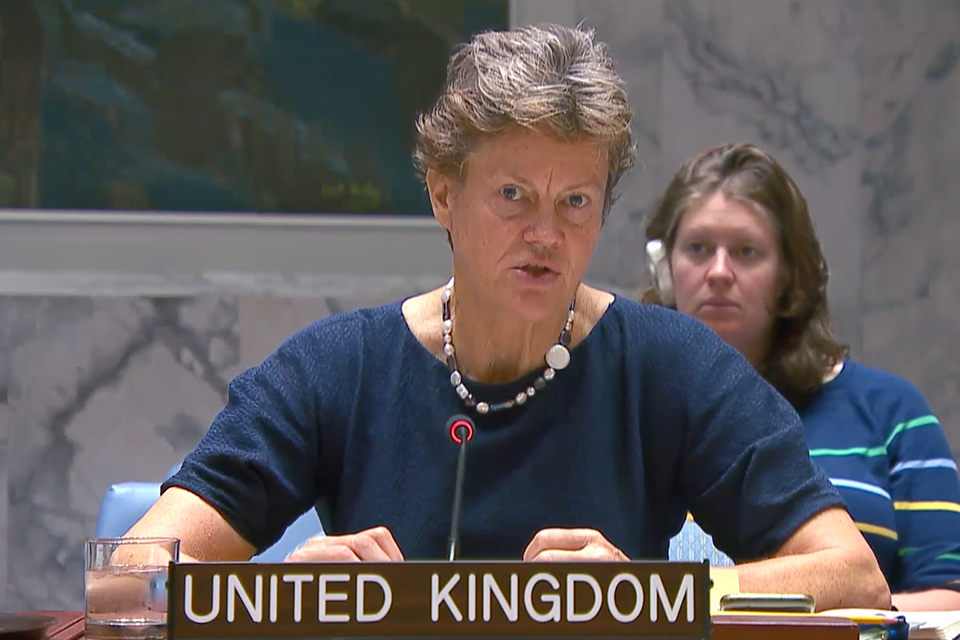The UK is committed to ensuring that technological progress serves as a force for peace: UK statement at the UN Security Council
Statement by UK Permanent Representative to the UN Ambassador Barbara Woodward at the UN Security Council meeting on the impact of scientific developments on international peace and security.

I’d like to highlight three points.
First, we share the view that the Council must remain ahead of emerging threats. As the briefers noted, advances in neurotechnology, engineering biology and artificial intelligence offer significant potential but also create risks that can impact on international peace and security. This is particularly true as these advances intersect, causing a compounding effect.
In future, quantum technologies may break the most advanced cryptographic encryption threatening secure communications and information systems that underpin peace and humanitarian operations. While human augmentation technologies, such as exoskeletons, that can facilitate quicker and more efficient decision-making on the battlefield and may be exploited by malicious actors.
Today, AI is already being weaponised by state and non-state actors to spread disinformation at scale.
The UK is actively working to counter the impacts of disinformation through data-driven tools and localised information verification systems including through the AI Summit series that was launched in Bletchley last year and to which Korea and France have already alluded.
So we endorse the briefers recommendations for the Council to deepen its collaboration with the scientific community and to systematically incorporate scientific analysis into reports and briefings on existing Council files.
Second, many scientific and technological advancements are dual use. So there is a role for this Council to promote the development of national, regional and international governance approaches that enable economic growth and development while mitigating risks to security.
It is essential that technologies are researched, developed and deployed responsibly and ethically, in accordance with international law, including international human rights and humanitarian law.
Third, the Council can prevent emerging threats before they escalate by better integrating scientific tools into decision-making. Developing capabilities for early warning through data analytics, as the UK has done through support for the AU’s early warning mechanism and the UN’s Complex Risk Analytics Fund, can enable the Council to better anticipate risks and make timely, informed decisions.
In conclusion, President, the UK remains committed to ensuring that technological progress serves as a force for peace and security, not instability.